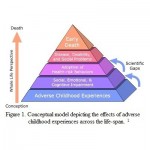Attachment, Emotion Regulation, and Resiliency
Often, during the first week of treatment at The Meadows, people will skeptically inquire, “Do experiences in childhood really continue to affect my life as an adult?” While social scientists and mental health clinicians have been exploring this question for decades, other fields of science and medicine have been slow to recognize the effects of childhood adversity on adult health and wellbeing. However, this trend may be changing, in part due to a very influential study by a group of researchers at the Centers for Disease Control and Prevention that are examining the long-term effects of adverse childhood experiences (ACE) on various health outcomes in over 17,000 members of a managed healthcare organization in California.
In general, the results of the ACE study1 show that adverse childhood experiences (e.g., abuse, neglect, abandonment) are relatively common and are associated with higher rates of early initiation of tobacco use and sexual activity, adolescent pregnancy, multiple sexual partners and STD’s, intimate partner violence, alcoholism, illicit drug use, depression, and suicide attempts. Of course, this resonates completely with our clinical experience and treatment model at The Meadows. However, these investigators also found that adverse childhood experiences are related to elevated rates of liver disease, autoimmune disease, chronic obstructive pulmonary disease, ischemic heart disease, and lower levels of health-related quality of life.
 These compelling data suggest that childhood maltreatment is associated with a variety of mental, emotional, social, and physical health problems in adulthood. In fact, results such as these have led some people to elevate childhood maltreatment to the level of a “public health threat”. Yet, as indicated by the conceptual model used in the ACE study (see Figure 1), there are considerable gaps in our scientific understanding of the mechanisms and mediating pathways connecting adverse childhood experiences to the host of deleterious outcomes mentioned above.
These compelling data suggest that childhood maltreatment is associated with a variety of mental, emotional, social, and physical health problems in adulthood. In fact, results such as these have led some people to elevate childhood maltreatment to the level of a “public health threat”. Yet, as indicated by the conceptual model used in the ACE study (see Figure 1), there are considerable gaps in our scientific understanding of the mechanisms and mediating pathways connecting adverse childhood experiences to the host of deleterious outcomes mentioned above.
Attachment theory has proven to be a useful framework for understanding how early relational experiences influence developmental pathways and adult functioning (see earlier article on attachment). Over fifty years ago, John Bowlby (the “father” of attachment theory) studied adverse childhood experiences in delinquent and homeless children and found that a warm, continuous, and secure attachment relationship between caregiver and child was of critical importance, not only because this biologically-driven bond enhances survival and reproductive fitness, but also because it establishes the foundation for successful social-emotional development and resiliency throughout the lifespan.


